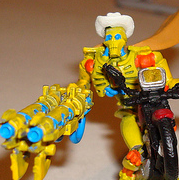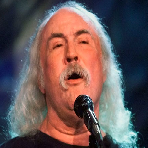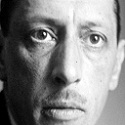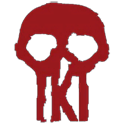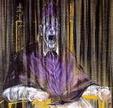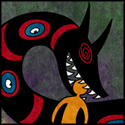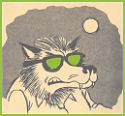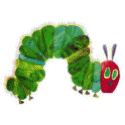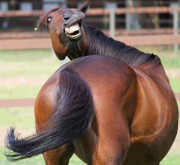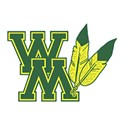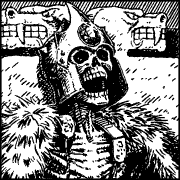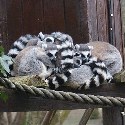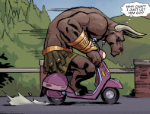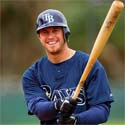|
Lumius posted:Wildcard - The Emigrants by Sebald. And ordered. Thank you. Edit: Since this ended up at the top of the page does anyone have a suggestion for a postmodern book? 8one6 fucked around with this message at 07:20 on Mar 23, 2015 |
|
|
|

|
| # ? Jun 1, 2024 17:49 |
|
8one6 posted:And ordered. Thank you. Since everyone's talkin' 'bout it, Check out The Dictionary of the Khazars by Milorad Pavic
|
|
|
|
8one6 posted:And ordered. Thank you. JR, by William Gaddis.
|
|
|
|
Update: 1. Menneskefluene by Hans Olav Lahlum. 2010 debut crime novel by a fairly well-known Norwegian media personality (really a historian but a general power nerd), but it's a period piece set in 1968 and dealing with one-generation-later fallout from WW2. Very much a classic mystery with a great locked-room murder, memorable characters, dramatic reading of the murder victim's last will and testament, etc. Enjoyable and clever, liked it a lot. 2. Teckla by Steven Brust. #3 in the Vlad Taltos series, and a decades-later reread for me. I love this series so much. 3. Ultima by Stephen Baxter. Pretty much Baxter doing what he does: Exploration of weird-rear end physics and cosmology, with paper-thin characters and so on. Decent but not really top-shelf Baxter. 4. Satellittmenneskene by Hans Olav Lahlum. #2 in the series that started with #1 above. Apparently there's six of these books already. Good read again, very much in the Agatha Christie vein. The main characters here are a quite competent police detective and a teenage girl in a wheelchair (who shows up as an unofficial consultant; daughter of a friend of the detective's family; extremely intelligent but also a bit of an rear end in a top hat). 5. REAMDE by Neal Stephenson. Stephenson goes all modern-day technothriller. Enjoyable albeit fairly lightweight as Stephenson novels go (long though, and took me forever for some reason), as usual the most amusing bits were all the digressions. 6. Atlas of Remote Islands by Judith Schalansky (actually read this in Norwegian translation and the original is German, just listed the English title here for convenience). Very short but enjoyable collection of short anecdotes and factoids about a wide selection of, exactly, remote-rear end islands. 7. Annihilation by Jeff VanDermeer. In the immortal words of Krusty the Clown, "What the hell was that?" Yeah, I'm intrigued enough that I'm going to read the rest of the trilogy. I mean, what in the actual gently caress. 8. The Last Ringbearer by Kirill Yeskov. Fan-translation found floating around on the net. A very odd book which takes as its starting point the central events of The Lord of the Rings and assumes it is largely post-war propaganda written by the winning side, then undertakes a realist/cynical examination of the kind of sequence of events that might result in something like that being written, and then makes a sort of espionage thriller out of the aftermath. Fun read. 9. Njålssoga (aka Njåls saga, the Saga of Burnt Niall, etc. in various translations) by unknown author. Biggest and grandest of the Icelandic sagas, written by some unknown (probably) Icelandic author who compiled facts and alleged facts from various written and oral sources during (probably) the end of the 13th century, about events that had happened about three centuries earlier. Historical as gently caress despite various embellishments and also utterly, utterly OG Still reading Worm inbetween other stuff. So far: 9/40 overall goal, of which 1/5 allowed rereads 2/10 Norwegian books 3/5 nonfiction Booklord challenge points met: 5 (Njålssoga), 12 (Ultima), 13 (Teckla; teleporting sorceror-assassins aren't particularly real), 15 (Ultima again, published November 2014), 16 (Njålssoga), 22 (Menneskefluene).
|
|
|
|
Argali posted:Have you read Georges Bataille's The Impossible? I think that's far better than The Blind Owl and, thematically, is in the same general ballpark. I have not read any of bataille's stuff yet but I will check this one out.
|
|
|
|
I've been reading alot, but haven't updated my list in a long-rear end time. Any intense thoughts and feelings about each book I read have probably mellowed out some and become relatively bland. Generally speaking, I've had a pretty good time. 7. [Biography] Bossypants by Tiny Fey. It shouldn't come as a surprise that an autobiography by a famous comedy writer would end up being pretty funny. I kinda wish there was more of it, as it didn't dig particularily deep. 8. [The Blind Owl] The Blind Owl by Sadegh Hedayat. Kudos, Booklord. I liked this short story (novelette?) a great deal. Well, maybe liked isn't quite the word. Rather, I'd say I appreciated the experience of dual decents into confusion and madness. Very evocative. 9. [Short Stories] Theatre Grottesco by Thomas Ligotti. Less hit-and-miss than most collections, this was a pretty consistant work. I expected horror, dread, and ennui, but never found myself feeling much more than fascination. Fascination is great, though. 10. [Unreal] City of Stairs by Robert Jackson Bennet. The internet seems to be falling over itself to fellate this book. It was pretty great, and a fun read. I found it very reminiscent of Sanderson's Mistborn and McClellan's Powder Mage books, though I'd say it was a bit more thoughtful with the writing, and didn't have Sanderson's RPG Player's Guide mechanical base. It reminded me strongly of another author at the time, as well. I can't remember who. 11. [A Play] Rosencrantz and Guildenstern are Dead by Tom Stoppard. It can be difficult to read a play, but even with that barrier I found this to be quite funny, and extremely clever. 12. [Absurdist] The Man Who Was Thursday: A Nightmare by G.K. Chesterton. Really good, lots about it to think about like why they were all wearing those weird clothese at the end? Seemed kind of mystical/religious probably. (I liked it) 13. [Female Author] The Left Hand of Darkness by Ursula K. Le Guin. I liked this a lot. Interesting sci-fi concept were paired with well realized characters and comfortable prose. Can anyone speak to the quality of the other books in her Hainish Cycle? 14. The Autumn Republic by Brian McClellan was good. All its excitement and adventure was slightly undercut by the cramming of too many unexplored plot points in at the very end. The final section of the novel might have been better served as a book of it's own, allowing the twists and turns and revelations to get some buildup so as to not fall so flat. 15. [Mystery] Foucault's Pendulum by Umberto Eco. I think I'm more impressed by this book as an authorial undertaking than anything else, as I don't think I actually enjoyed it very much. It's extremenly dense and detailed, and I found to to be a slog. The books is composed almost entirely of boring windbags bloviating incessantly at each other, and the mystery plot only really kicks in for the last 150 pages or so of this 700 page behemoth. The book jacket description pretty much only refers to the final 5th of the book, while the rest of the novel is spent wishing the characters would shut the gently caress up. Maybe that was the point. 16. [Non-White] The Three-Body Problem by Cixin Liu was great. A very interesting sci-fi book with heavy focus on the Chinese cultural revolution. My only complaint would be that every character sounds the same and all the dialogue comes across as awful and childish, like a play written by a primary schooler. This might be a result of the translation. 17. [Poetry] The Waste Land and Other Poems by T.S. Eliot. This collection contained poems from three distinct parts of T.S. Eliot's life. I very much enjoyed his early work, and The Waste Land, his later work. His early poems had a strong sense of cynicism and disdain that was powerfully expressed. His middle work I found to be overwraught and composed nearly entirely of references to Dante and Shakespeare, and the message became muddled. 18. [The Colour Red] Rainbows End by Verner Vinge. Why this for the colour red? Because I make my own damned rules, that's why.  This book was ok. Like the Three-Body Problem, the tech and science fiction bits were really interesting, but the characters and dialog were obnoxious. Rainbows end contained precocious sci-fi teenagers and descriptions of augmented reality, which I find irritationg almost every single time. Everyone spoke to each other like they'd recently suffered a brain injury. Every character in the book has to take time out of their day to tell the reader what an rear end in a top hat the protagonist is. He never seems to act all that assholish, and the discrepency is mentally jarring. After reading praise for Verner Vinge's other novels, I expected much more from this. Dissappointing, with some alright tech. For the poetry section I tried reading Motherland Fatherland Homelandsexuals by Patricial Lockwood and ended up putting it down. I found most of the poems to be stream of consciousness word-salad and generally insufferable. Am I bad at reading poetry? Oh. Uh. Somebody Wildcard me up something badass.
|
|
|
|
Oranges are Not the Only Fruit by Jeannette Winterson
|
|
|
|
ColonelCurmudgeon posted:1. L.P. Hartley - "The Go-Between" 6. Alix Christie - Gutenberg's Apprentice: Lenghty historical epic about the construction of the first printed book. Gutenberg playing the role of the ego-centric, cash-hungry lunatic, with all fingers in all pies and perpetually on the verge of derailing the secrecy of their heretical project. Got repetitive, at least as far as the several hundred pages rehashing the forging and setting of type, and could have done without the love interest, however the relation to the German political situation vis a vis merchants and the church and the Turkish threat, coupled with the realization of scribes that their way of life was on the way out helped salvage it. 7. J-K Huysmans - Against Nature: Perpetual contrarian, agoraphobe, and hypochondriac dandy hates everything beautiful, paints turtle, eats black dinner, prefers enemas. Terse, turgid, wordy prose made for heavy going. Difficult to get through. Wouldn't say it was an enjoyable experience. I understand what Huysmans was doing in responding to the Naturalists/decadence in general, but drat, this is a book I never want to revisit. ColonelCurmudgeon fucked around with this message at 13:51 on Mar 25, 2015 |
|
|
|
I'm not reading for poo poo right now because I'm really not enjoying Falstaff, but I do want to say that: 1) Siminu, you're a good poster. 2) The Martian is hella cool. I'm gonna post a real update when I'm done with this loving book.
|
|
|
|
Mahlertov Cocktail posted:I'm not reading for poo poo right now because I'm really not enjoying Falstaff, but I do want to say that: If you're not enjoying it, you should stop. Don't keep reading just because it was wildcarded--that's no reason to not have fun while reading. You should just get a new wildcard. Heck, I'll even suggest one: The Fifth Business.
|
|
|
|
apophenium posted:1. Forge of Darkness by Steven Erikson. Gosh it was so great to get back into the Malazan world. I wasn't that impressed with Assail from last year, but FoD blew me away. Can't wait for Fall of Light. 5. The Golem and the Jinni by Helene Wecker. Quite a sweet story of two magical beings enduing immigrant experience of early 1900s America. Eager for more from Wecker. 6. Joyland by Stephen King. Read this in one day. Once again King nails a story, but completely flops the ending. Still worth reading, however. 7. Way of Kings by Brandon Sanderson. The exact opposite type of fantasy I enjoy. Hated this basically from page one, but kept reading. It did not get better. 8. Perdido Street Station by China Mieville. The exact type of fantasy I enjoy. Loved this basically from page one, and kept reading. It got even better. 8/30, 1/5 non-fiction, 2/5 female authors. Not sure what to read next...
|
|
|
|
I've been posting my thoughts on the books I've read in the "What Did You Just Finish Reading?" thread so I won't paste it all here. As of the last update I was at 16 books, but I am now at 20 - been a busy month. Since my last update in this thread, I've read: Patricia Lockwood - Motherland Fatherland Homelandsexuals Neil Simon - The Odd Couple Nick Hornby - Funny Girl David Brin - The Postman Here's my progress on the Booklord challenge: 1. The vanilla read a set number of books in a year. (Currently at 20/35) 2. Read 10 books by female authors (Currently at 5/10) 3. 4. Philosophy 5. History 6. 7. 8. 9. Something absurdist 10. 11. 12. 13. Something dealing with the unreal 14. Wildcard 15. 16. That one book that has been sitting on your desk waiting for a long time 17. 18. 19. 20. Something banned or censored 21. Short story(s) 22. A mystery I'm currently reading Exit by Nelly Arcan, not sure what I will read after that but my wildcard is on top of the pile. I will probably read more poetry later this year (maybe something more traditional, or uh, older) and I really enjoyed reading the Neil Simon play. I'm going to read more of his plays because The Odd Couple was genuinely hilarious.
|
|
|
|
apophenium posted:5. The Golem and the Jinni by Helene Wecker. Quite a sweet story of two magical beings enduing immigrant experience of early 1900s America. Eager for more from Wecker. A couple of suggestions, if you don't mind: Give Hunger by Knut Hamsun and/or Blindness by José Saramago a read. If you loved PSS by Miéville, you might want to check out The Scar too.
|
|
|
|
Blind Sally posted:If you're not enjoying it, you should stop. Don't keep reading just because it was wildcarded--that's no reason to not have fun while reading. You should just get a new wildcard. Heck, I'll even suggest one: The Fifth Business. Eh I'm 70% through so I'll knock it out. Sunk cost fallacy all the way! I'll check out Fifth Business too though 
|
|
|
|
Mr. Squishy posted:1 One Third of a Nation by Arthur Arent and others. A play exploring the dire housing situation in depression-era New York. Agit-prop long past its sell by date but still fascinating, mostly for being in such a foreign style. (17) 5 The Old Men at the Zoo by Angus Wilson. It's nice to see his continue hysterical attack over social niceties and the possibilities of violence infused with some surprisingly keyed-in social commentary. I mainly felt cut off from the time, this book realy conveys the panic of an age bouncing from WW2 into ann uncertain future of nuclear destruction and political irrelevance. I would say I enjoyed this book more than any of his other novels I've read. 6 Faust, part one by Johann Wolfgang von Goethe as translated by Phillip Wayne. I'm not sure how they've diveded up the play, part 2 seems a great deal thicker. Nice to see the black poodle circling Faust in little fiery steps. I probably need to reread this, I wasn't treating this fair. 7 The Double by José Saramago as translated by Margarat Jull Costa. After ignoring the trailers for Enemy for weeks I saw this in a bookshop and decided why not. I really enjoyed reading the book making GBS threads on this lovely dude and his slight ethical failiures. I honestly skipped over the chapter where anything happened because I couldn't be hosed reading about uh, blackmailing people into pimping out their partners. Sorry José. 8 The Blind Owl by Sadeq Hedayat as translated by Iraj Bashiri. Dug this thing. I liked it when he killed her 10 8 Fight Club by Chuck Palahuink. Boy, this wasn't good. I mean, the writing was OK but the underlying politics is just impossibly irritating. 9 Cathleen ni Hoolain by WB Yeats and Lady Gregory. Watta lotta Irish plays forthcoming. Included because otherwise I'd have read 4 books in two months. This one's a short blighter about the attraction of war. Also casts the Nationalist cause as a shapeshifting vampire, which is nice I guess. 10 Translations by Brian Friel. Clever play about language. Also included a dippy English soldier getting ganked by the IRA. RIP to him. 11 By the Bog of Cats by Mariana Carr. A Tennessee WIlliams-esque thing about capitalistic bastards trying to drive a traveller from her actual bog, which she stomps around while feeling emotions about her vanished mother. Gotta like that dumb sort of violence, I guess. 2 12 The Beauty Queen of Leenane by Martin MacDonagh. It's the In Brughes guy. It's like an O. Henry story with some gruesome abuse in the middle and a slick bit of violence throughout. Or well, like that one O. Henry story that everyone knows. 13 A Skull in Connemara by Martin MacDonagh. This has a lot more of that bloody violence. Features a kid who cooked a hamster and keeps going from there. Entertaining, you know. 14 Bailegangaire by Tom Murphy. Now this is a play. Family bickering going over the endlessly repeated retelling of history,like Krapp's last tape. 15 Pnin by Vladimir Nabokov. Fun but boy it shows that this was a series of stories rather than a novel. Characters are introduced and then dropped as the introduction was the only fun bit to write. I'm glad he didn't break the bowl at the end. 14/60 1 2 3 4 5 6 7 8 9 10 11 12 13 14 15 16 17 18 19 20 21 22 I am doing poo poo for reading so far this year. And I should really get back onto Goodreads as it helps keeping my books straight. Currently reading Libra by Delillo and he's basically a thriller writer with ideals above his station, right? You should hear some of the dialogue he comes up with, jeepers. e: I forgot Pnin! Mr. Squishy fucked around with this message at 23:46 on Mar 25, 2015 |
|
|
|
I like Delillo, and really enjoyed Libra, but I don't think I would have ever thought of that novel as a thriller.
|
|
|
|
Challenge... of the Booklord!
Books by non-white authors: 2 quote:January Managed to finish one more book in February after my last update 24. Fool Moon by Jim Butcher I could make a joke about this book featuring not one, but four different kinds of werewolves, but it would be more than this book deserves. It's aggressively mediocre. Honestly, if everyone and their grandma didn't tell me that the series actually becomes good in book three I'd give up right here. Literature March! 25. The Great Gatsby by F. Scott Fitzgerald Ultimately I found it a boring story full of people leading meaningless lives, but I suppose you’ll tell me that was the point. 26. A Midsummer Night's Dream by William Shakespeare I liked it. I’ll have to see it live some day. 27. The Old Man and the Sea by Ernest Hemingway Other than finding it well written I have no strong opinion about it. 28. And Then There Were None by Agatha Christie Fantastic work. It was tense for almost the entire length of the story. About midway through I had a suspicion of "whodunnit" but I was completely wrong. 29. The Last Days of Socrates by Plato It's the first time I've read Plato and it was actually a lot more engaging that I was expecting. 30. Rights of Man by Thomas Paine I probably should have read Burke's "Reflections on the Revolution in France" first because the first half of The Rights of Man is basically one big rebuttal of that piece, but it was still an interesting read. 31. Slaughterhouse-Five by Kurt Vonnegut I can't really do this book justice with a review. It's a humorous account of a man unstuck in time. It's also a heavy account of the firebombing of Dresden. The one kept leading back to the other and back again and you feel bad for laughing at the absurdities of war while on the same page a man finds himself in an alien zoo. I think this book is fantastic and I recommend you read if if you haven't already. 32. Fahrenheit 451 by Ray Bradbury A warning against an illiterate populace and a story of a censor who grows to regret the part he's played. This was a fantastic read. 33. Brave New World by Aldous Huxley A dark future where the tyranny of happiness has destroyed humanity, leaving only a factory fabricated substitute behind. The author did an good job building a dystopia, as the scenes Huxley painted for the reader were almost as believable as they were off-putting. This feels more heavy handed than 1984, like the author was standing over my shoulder going "see, see what radio and movies have in store for us? Look, there's literally an opiate for the masses! See what I did there." A lot of people have talked this up as one of the greatest English language novels, but in my personal opinion it's not as strong as 1984. April isn't going to be completely genre trash, as I'm going to start my The Emigrants by Sebald when it gets here and I'm most likely going to hunt down a copy of The Dictionary of the Khazars.
|
|
|
|
Mahlertov Cocktail posted:Eh I'm 70% through so I'll knock it out. Sunk cost fallacy all the way! I'll check out Fifth Business too though Also, the book just got so much better with the addition of Scropes's entries. Apart from the reveal that Fastolf/Falstaff is the world's most unreliable narrator, it's awfully nice to have a different voice for once. It was always more enjoyable when dialogue showed up because it broke up the endless samey narration, and this takes it one step further.
|
|
|
|
I have read maybe 1 book on the Harold Blloom Western Canon list and it was Tristram Shandy and it was a great book about how authors, and indeed every person, are all impotent. I have read other books too, but they were mostly about philosophy. Now I'm reaidng some other books. Well, thanks.
|
|
|
|
Guy that read The Man WHo Was Thursday: good.
|
|
|
|
elbow posted:A terrible start to my reading year - going from part-time work with a long commute to full-time with a short commute has really cramped my style. Goals: 1. Read 60 books 2. Read 5/10 books by a female author 4. Philosophy 5. History 7. A collection of poetry 8. Something post-modern 9. Something absurdist 10. The Blind Owl 13. Something dealing with the unreal 14. Wildcard 15. Something published this year or the past three months 16. That one book that has been sitting on your desk waiting for a long time 17. A play 18. Biography 19. The color red 20. Something banned or censored January - 2/60 1. De Intrede van Christus in Brussel, by Dimitri Verhulst. 4/5 2. Murder in Mississippi, by John Safran. 4/5 February and March - 13/60 3. The Chemickal Marriage, by GW Dahlquist. This is the last volume in the Glass Books of the Dream Eaters trilogy, and unfortunately it had been about 3 years since I last read the first and second book in the series. At first it was difficult to remember who the various characters were, but I just kind of went with it and ended up getting swept up in the adventure anyway. Didn’t appreciate that ¼ of the book was about how Celeste, one of the three protagonists, was continually overcome with lust. We get it, Dahlquist. Still a great read. 3.5/5 4. The Death of Grass, by John Christopher. A misogynist piece of crap, I hated this book from start to finish. While I understand why the characters are racist (Christopher wrote this in part as a critique of British exceptionalism), I don’t know why they’re sexist pigs. Their values and morality are all over the place as well, and I felt like this was at times not part of the aforementioned critique, but just sloppy writing. On the one hand the protagonist(s) think that farmers and people from the country have got things figured out, on the other hand they look down on them. “Ann shouldn’t take things too much to heart, Johnny. It’s all in a day’s work.” – one female character talking about another female character who was raped and watched her daughter being raped, and then shot the guy who did it. “[H]er rather stupid country face still showing no signs of anything but submission in the inevitable.” – the main character talking about a young woman whose parents he killed so they could spend the night in a house. gently caress this book. 1.5/5 5. The Last Policeman, by Ben Winters. This was such an enjoyable book, just a fun read. It’s a detective story set in the US, with an oncoming apocalypse in the form of an asteroid. Looking forward to reading the next book in this trilogy. 4/5 6. Bad Feminist, by Roxane Gay. Picked this up because I’d heard such great things about it, and it didn’t disappoint. I really appreciate how inclusive her writing is, and how she can critique TV/movies/books while still enjoying them. 4/5 7 – 10. Four trashy YA novels I read and loved as a kid and wanted to revisit. 11. Elephant and other stories, by Raymond Carver. Love Carver, he mastered the craft of short stories. That said, I didn’t think this was his most outstanding collection. 4/5 12. Wolf in White Van by John Darnielle. Really enjoyed this, though I think Darnielle still has a little way to go in his craft – there were a bunch of secondary/tertiary characters who kept floating in and out of the story and I had no idea who they were. Still, immensely enjoyable. 4/5 13. Rivers, by Michael Farris Smith. I was really excited about reading this but found it a bit disappointing. I never really felt a connection to any of the characters, and while the premise is interesting, it wasn’t given enough history/background/context for me to ever fully suspend my disbelief. 3/5
|
|
|
|
bokes March - 5: The Good Soldier Svejk and his Fortunes in the Great War (Jaroslav Hasek) The Buried Giant (Kazuo Ishiguro) after the quake (Haruki Murakami) The Colour of Magic (Terry Pratchett) The Light Fantastic (Terry Pratchett) Helpfully I wrote a load of things and managed to delete them like a twat so here are thoughts in short: The Good Soldier Svejk - good, long. Pointless and stops halfway through a scene, thanks for dying Hasek. Enjoyed. The Buried Giant - slow starter, gets better about a hundred pages in. Not Ishiguro's best work by a long shot but not bad either. after the quake - Murakami Murakami'ing about Kobe. The Colour of Magic and The Light Fantastic - I'm re-reading Discworld in publication order (and hitting a few I've missed over the years) since Pratchett went and died. TCoM is weird and super different to what follows. Even a book later in Light Fantastic there's a significant tonal and stylistic shift that's much closer to everything else. Next I'm reading The Girls of Room 28 about girls in a concentration camp. Intriguingly until Pratchett I hadn't read anything by an English/North American author since the Stalin biography and before that Mussolini, and at number 12 The Colour of Magic is the first novel written by an Englishman I've read all year since the other three books were non-fiction (depending on how you feel about the Englishness of Ishiguro and Conrad ymmv). This is a pretty big contrast from a couple of years ago although it does help that I'm picking a bunch of stuff off my girlfriend's shelves. This month I also ticked off something dealing with the unreal (#13, Colour of Magic) and something published in the past year or three months (#16, The Buried Giant). I'm also going to claim after the quake for "short stories" and use Yoko Ogawa as the female author to claim #2. Year to Date: 13 01. The Establishment: And how they get away with it (Owen Jones) 02. Mussolini and Fascist Italy (Martin Blinkhorn) 03. Love in the Time of Cholera (Gabriel Garcia Marquez) 04. All You Need is Kill (Hiroshi Sakurazaka) 05. Theft: A Love Story (Peter Carey) 06. Stalin (Kevin McDermott) 07. Heart of Darkness (Joseph Conrad) 08. Revenge (Yoko Ogawa) 09. The Good Soldier Svejk and his Fortunes in the Great War (Jaroslav Hasek) 10. The Buried Giant (Kazuo Ishiguro) 11. after the quake (Haruki Murakami) 12. The Colour of Magic (Terry Pratchett) 13. The Light Fantastic (Terry Pratchett) Booklord categories: 2, 3, 5, 11, 13, 16 18, 21.
|
|
|
|
Finally finished my Proust biography by William Carter. It was cool to get some context for the Search, and see some of the personalities that Proust used to create his characters. Robert de Montesquiou turns out to be as hilariously prickly and demonically proud as Charlus. His correspondence with Proust is very funny. I kinda feel like I just should have read a collection of letters rather than this biography, but overall, still recommended if you are interested. I also re-read a bunch of O'Brian's Aubrey-Maturin books to stave off winter depression. Now that the sun might be coming back I am reading Middlemarch, Dorothea just married Casaubon, so things are apparently about to get real. Books read: 7/30 Challenge: read a biography.
|
|
|
|
End-of-March update. 1. The vanilla read a set number of books in a year. - 15/40 3. The non-white author - The Satanic Verses by Salman Rushdie 4. Philosophy - Either Derrida or Spinoza 5. History 6. An essay - Where the Stress Falls. Essays. by Susan Sontag. 9. Something absurdist 12. Something dealing with space - The Cyberiad by Stanislaw Lem 14. Wildcard (Some one else taking the challenge will tell you what to read) - The Cyberiad by Stanislaw Lem 15. Something published this year or the past three months 16. That one book that has been sitting on your desk waiting for a long time - Feast of the Goat by Vargas Llosa 17. A play - Waiting for Godot (if someone has a better suggestion, just holler) 18. Biography - Ingar Sletten Kolloen's Hamsun biographies 19. The color red 20. Something banned or censored - The Satanic Verses 21. Short story(s) 22. A mystery 1. Hear the Wind Sing, Haruki Murakami 2. Pinball 1974, Haruki Murakami 3. On The Beach, Neil Shute 4. Collected Poems by Per Sivle 5. History of the Siege of Lisbon, José Saramago 6. Wayfarers, Knut Hamsun 7. The Seed, Tarjei Vesaas 8. Morning and Evening, Jon Fosse 9. The Collected Poems of Alberto Caeiro, Fernando Pessoa 10. Doktor Faustus, Thomas Mann 11. Collection of poems, Gabriela Mistral 12. Doctor Glas, Hjalmar Söderberg 13. Love in the Time of Cholera, Gabriel García Márquez 14. Invisible Cities, Italo Calvino 15. Inherent Vice, Thomas Pynchon 15/40 Doktor Faustus is a reimaging of the old German legend of Faust, written as a fictional biography about a composer and all-around genius named Adrian Leverkühn. It's told from the first-person perspective of a friend of his after his death. There's also a parallell story about Germany spanning from world war 1 up to around 1946, and in the latter half it describes both the cultural as well as the physical destruction of Germany. Mann utilized the direct address at the reader as a device for unreliable narration almost in perfection. A phenomenal book allround. Doctor Glas, on the other hand, is about a medical practitioner living in 1905's Stockholm. The entire novella is presented as a series of diary entries, and shows us how a young doctor deals with questions of right and wrong, existentialism and general melancholy. I got some strong Crime and Punishment-vibes coming off of this book, and I wouldn't be at all surprised if Dostoyevsky influenced Söderberg in a major way. Highly recommended. Love in the Time of Cholera is about a couple of teens, Florentino Ariza and Fermina Daza who falls in love, and then ends up separating from eachother. Fermina marries a doctor who wishes to erradicate Cholera, while the Florentino ends up slamming a bunch of women on the reg in a secret room, all the while still pining for his former sweetheart. After Fermina's husband dies, Florentino tries to win her heart again by sending her verbose love letters. And in classic Gabo style, the Florentino ofcourse has to enter a sexual relationship with a teenager that's at least 30 years his junior at some point. It was pretty okay-ish, not as good as 100 yers of solitude, and about on par with the novella Memories of My Melancholy Whores. I can't say too much about Invisible Cities without spoling the experience too much, but it's a series of prose poems about impossible and unreal cities, with the main plot being that Marco Polo tells Kubali Khan a story about all the different cities he has explored. A brilliant book. And being a humongous pleb, I'm not really sure how to summarize Inherent Vice. It starts off as a story about a potheaded ex-cop turned private investigator joining in on a plot to kidnap a jewish nazi mobster, and turns into some drug-crazed trip all over California. I think "paranoia, sex and drugs" might be a proper description. I'll probably have to read this again at some point, to get a better grasp at what the heck I was reading. Not gonna say all that much about Gabriela Mistral's poetry. A lot of them deals with womanhood and nature and life in rural Chile. Not too bad really. Maybe there's better poetry out there? gently caress if I know. ulvir fucked around with this message at 16:14 on Mar 29, 2015 |
|
|
|
Mahlertov Cocktail posted:Also, the book just got so much better with the addition of Scropes's entries. Apart from the reveal that Fastolf/Falstaff is the world's most unreliable narrator, it's awfully nice to have a different voice for once. It was always more enjoyable when dialogue showed up because it broke up the endless samey narration, and this takes it one step further. I wondered if your opinion might change at that point. I had read the plays beforehand, so the reveal wasn't a surprise to me. A big difference, I suppose, is that in the plays, Shakespeare always had someone nearby to quickly call Falstaff on his nonsense. That said, yeah, those later entries are great.
|
|
|
|
I finished Falstaff and actually ended up enjoying it more overall than I had been for most of it. The first and last quarters of the book are vastly superior to the middle, which drags a lot. Still, thank you to Blind Sally for the wild card recommendation! It also reminded me that I should probably read some more Shakespeare since I've only ever read Romeo & Juliet and Julius Caesar for school.Blind Sally posted:I wondered if your opinion might change at that point. I had read the plays beforehand, so the reveal wasn't a surprise to me. A big difference, I suppose, is that in the plays, Shakespeare always had someone nearby to quickly call Falstaff on his nonsense. That said, yeah, those later entries are great. Yeah! Like I said above, I'm also gonna check out some Shakespeare this year. You got a favorite to recommend me? Stravinsky posted:1. The vanilla read a set number of books in a year. - 8 so far! So far: 1. The Lies of Locke Lamora by Scott Lynch (reread) 2. The Rise of the Warrior Cop by Radley Balko 3. The Dog Stars by Peter Heller 4. The Disaster Artist by Greg Sestero - I posted about this and all the previous ones earlier in the thread. 5. Annihilation by Jeff Vandermeer - this was a really cool weird book, and I am curious where the trilogy goes from there. Unfortunately, the friend who recommended Annihilation was harshly critical of the next two books so I'm gonna give myself time to let that negative expectation go away before getting my hand on them. 6. The Martian by Andy Weir - loved this. Every time you think that the pattern of "Mark encounters a problem and then comes up with a clever solution for it" is gonna get stale, Weir puts a new spin on it. Mark is also a really fun narrator without feeling forced. It reminded me a lot of the film Gravity in the best way (minus motherhood themes, obviously). 7. Falstaff by Robert Nye - see above! 8. A Boy and his Dog by Harlan Ellison - this was my first Ellison and I enjoyed the hell out of it. The writing was quite good and Vic and Blood were both really great characters in a cool post-apocalyptic world. You can totally see how people took all sorts of inspiration from Ellison. and currently reading: 9. Fiction Ruined My Family by Jeanne Darst
|
|
|
|
Perhaps not surprisingly, one of my favourite plays is actually King Henry IV, Part 1. It's one of Shakespeare's histories, but it's really more of a dramatized historical fiction. It has a nice mix of drama, political intrigue, and comedy, raunchy and otherwise--a lot of it generated by Falstaff. If anything it'd be a nice coda to Falstaff and would give you an opportunity to see what the fat man was like before he faded into obscurity. That said, Prince Hal is also an excellent character, and he and Falstaff both own the scenes they're in. It's also part of a quadrilogy, so if you really liked it, you could check out the "prequel" in The Tragedy of Richard II, the downfall of Falstaff in the sequel, King Henry IV, Part 2, Hal's crowning achievements in King Henry V. That aside, I KingHenry IV works great as a stand-alone play. Also, King Lear. Though Lear can be a pretty brutal and depressing play at times, I've always found it superior to Macbeth and Hamlet, both of which are often considered by critics to be some of Shakespeare's best work. Though ultimately, I suppose it depends on what sort of drama are you looking for in Shakespeare? Comedy? Romance? Tragedy?
|
|
|
|
Blind Sally posted:Perhaps not surprisingly, one of my favourite plays is actually King Henry IV, Part 1. It's one of Shakespeare's histories, but it's really more of a dramatized historical fiction. It has a nice mix of drama, political intrigue, and comedy, raunchy and otherwise--a lot of it generated by Falstaff. If anything it'd be a nice coda to Falstaff and would give you an opportunity to see what the fat man was like before he faded into obscurity. That said, Prince Hal is also an excellent character, and he and Falstaff both own the scenes they're in. It's also part of a quadrilogy, so if you really liked it, you could check out the "prequel" in The Tragedy of Richard II, the downfall of Falstaff in the sequel, King Henry IV, Part 2, Hal's crowning achievements in King Henry V. That aside, I KingHenry IV works great as a stand-alone play. Wait poo poo I've read King Lear too! And we saw a really good production of A Midsummer Night's Dream in high school too. It's been a while though, so honestly I could probably go into any Shakespeare and be more or less fresh. Comedy and tragedy are what I remember liking most in the Shakespeare we read/saw in high school. The description you gave of Henry IV makes it sound like it's right up my alley, so I'll check it out!
|
|
|
|
Female authors: 5/24 Non-fiction: 3/12 Goodreads. I didn't bother posting in February because I only read two books, so here's a big catch-up post. The Labours of Hercules is a short story collection, and it's mediocre by the standards of the series. It was enjoyable but nothing special. Uglies is pretty good for YA. The story and characters are decent and I am interested enough to read the rest of the series at some point. I feel like there are some real inconsistencies with the technology and world though, like hoverboards seem totally implausible. And the big secret conspiracy seems totally unnecessary, but those are minor issues, otherwise I enjoyed it. The Harry Potter and the Natural 20 series is a surprisingly good Harry Potter parody in which a group of Death Eaters accidentally summon a D&D wizard. The author sticks pretty well to the original plot, and where he diverges he adds bits that are consistent with the Harry Potter universe and make sense in the story. I'd probably be getting a bit sick of the premise after the second one if not for the side plot he's added of a muggle police officer finding out about wizards and setting up various systems to keep that knowledge through repeated memory erasures, which may actually turn out to be the best part of the story. Women in Love feels really long. It's very wordy and seems to avoid ever getting to the point. That said, it's not boring or tedious, it just feels long. I liked the scenes of Ursula and Gudrun together, they were probably the most entertaining part of the book, but I didn't feel like they were particularly essential to it. On the other hand the scenes of Gerald and Birkin together were almost as entertaining, but felt more important, and I often thought as I was reading it that it would have been better as two separate stories, one about the Brangwens and the other about Birkin and Gerald, and not had them interact at all. I also would have liked more about Hermione and Winifred as I found them far more interesting than any of the four protagonists, and both of them just sort of disappear out of the story. A Mind Forever Voyaging was poo poo. There's plenty to talk about with regard to how storytelling in games differs from other media and how it's developed, but rather than any of that he basically just reviews some games he really likes. And not just that, but his research is really bad - several times where he says a particular game was the first to do some thing or other, I could think of an example off the top of my head of a game that did it earlier. The main problem with it though is just how desperate he is to convince you that "video games are art" and justify his playing of them. Due Justice was the worst by far though. The protagonist (Willa) is incredibly obnoxious, and her inability to put two and two together combined with her apparent inability to do the reasonable or sensible thing at any time serve only to pad the story out by making everything take longer than it should. It's stupid, lazy, rich arseholes wasting everyone's time. Everything about Willa is irritating. She seems to believe she's just a low-paid public servant, but she's clearly incredibly wealthy. She apparently has a job from which she basically can't be fired (American federal judges are appointed for life?), so she does a massively half-arsed job of it and barely even bothers showing up, then acts like her boss (or not her boss? I couldn't even tell) is the arsehole because, as far as I can tell, he'd like her to actually do her job. She daydreams through trials, she behaves incredibly unprofessionally, and seems to spend more time playing golf than working. And she's incredibly dumb. Generally in a mystery the protagonist is supposed to figure things out, but Willa needs everything spelled out for her. For example, we learn that character A is being blackmailed. We learn that character A is making payments to character B. But Willa somehow fails to connect those two facts until character A flat out states that character B is the blackmailer. Then there's the actual plot. It just goes around and around in circles, introducing a whole lot of irrelevant characters and trying to convince us that Willa is making progress when she clearly isn't. The obvious solutions are ignored until right near the end when it turns out that the big conspiracy angle Willa's been pursuing this whole time was bullshit and it was actually the more straightforward answer that any normal person would have been investigating right from the beginning. Even the series numbering is stupid. This is book one, but apparently there are two earlier books about the same character, they just don't have "justice" in the title. But Due Justice isn't even the original title for this book. It makes no sense to me. Finally there was Yes Please. It was OK. I have no particular feelings one way or the other about this book. 
|
|
|
|
Prolonged Shame posted:1) The Other Boleyn Girl - Philippa Gregory March was a good month reading-wise. 21) Narrative of the Life of Frederick Douglass - Frederick Douglass: Someone mentioned reading this last month and I though it sounded good. It was excellent. Heartbreaking and well written. 22) Spring Snow - Yukio Mishima: A charmingly written, beautiful, sort of coming of age story occasionally interrupted by exceedingly dull philosophical ramblings. 23) The Day of the Triffids - John Wyndham: One of the first post-apocalyptic novels. It was chilling and quite apt, even though it was written over half a century ago. 24) The Arabian Nights: Tales From a Thousand and One Nights - Anonymous: I enjoyed this. It was interesting seeing the origins of a lot of cultural touchstones and other notable literature. 25) Arabella - Georgette Heyer: I'm generally not a romance novel reader, but I really like this author. She's no Jane Austen, but she's the closest I've ever seen. 26) Woodrow Wilson: World Statesman - Kendrick A. Clements: An adequate biography of Wilson. 27) The Blind Owl - Sadegh Hedayat: I alternated between enjoying this and wanting to murder the narrator. Overall, I'm glad Stravinsky included it in his challenge as it is something I never would have picked up otherwise. 28) Worm - Wildbow: My first time reading a web serial, and I loved it. It was really long and needs some serious editing, but man was it enjoyable! 29) The Rosetta Key - William Deitrich: Book 2 in the Ethan Gage series. These are really fun and easy to read. 30) Don Quixote - Miguel de Cervantes Saavedra: I feel like I've been reading this forever. It was charming and funny, but way, way too long. 31) The Ohio Gang: The World of Warren G. Harding - Charles L. Mee: There is some controversy about the historical veracity of some parts of this book, but it was an enjoyable and easy to follow read - a real feat for a presidential biography. Also, I had no idea how much of a slimeball Warren Harding was. Total: 31/100 Presidential bios: 3/12 Non Fiction barring prez bios: 6/25 Stravinsky's Challenge: 1. The vanilla read a set number of books in a year. 31/100 2. Read a female author - The Other Boleyn Girl - Philippa Gregory 3. The non-white author - Narrative of the Life of Frederick Douglass - Frederick Douglass 4. Philosophy - The Art of War - Sun Tzu 5. History - In the Heart of the Sea: the Tragedy of the Whaleship Essex - Nathaniel Philbrick 6. An essay - The Best of Edward Abbey - Edward Abbey 9. Something absurdist - Perfume: The Story of a Murderer - Patrick Süskind 10. The Blind Owl - The Blind Owl - Sadegh Hedayat 11. Something on either hate or love - Arabella - Georgette Heyer 12. Something dealing with space - Foundation - Isaac Asimov 16. That one book that has been sitting on your desk waiting for a long time - Giant's Bread - Mary Westmacott 17. A play - Steel Magnolias - Robert Harling 18. Biography - William Howard Taft: The Travails of a Progressive Conservative - Jonathan Lurie 19. The color red - A Spy Among Friends: Kim Philby and the Great Betrayal - Robert Macintyre[/b] 20. Something banned or censored - The Giver - Lois Lowry 21. Short story(s) - Lost in the City - Edward P. Jones 22. A mystery - The Maltese Falcon - Dashiell Hammet
|
|
|
|
https://www.goodreads.com/user/show/13421112-thomasthehomemaster posted:
1. The vanilla read a set number of books in a year. (so far 14/52) 2. Read a female author [2/17] Paradise of the Blind; Lagoon 3. The non-white author [2/17] Paradise of the Blind; Lagoon 4. Philosophy 5. History [1/5] Vietnam: Rising Dragon; 6. An essay 7. A collection of poetry 8. Something post-modern 9. Something absurdist 10. The Blind Owl (Free translation if your ok with reading on a screen or cant find a copy!) 11. Something on either hate or love 14. Wildcard (Count of Monte Cristo) 16. That one book that has been sitting on your desk waiting for a long time 17. A play 18. Biography 21. Short story(s) 22. A mystery 8. Vietnam: Rising Dragon by Bill Hayton Read this while travelling through Viet Nam. Was a fantastic oversight of the current state of the country. It helped make sense of what I was witnessing first hand. Well written too. Definitely recommend if you are going to Viet Nam, or just interested in the country. 9. Monsters of Men by Patrick Ness Solid ending to the trilogy. Heaps of action, wasn't fussed with the introduction of a new POV (a Spackle). Maybe over-long and perhaps the writing style got grating, but it's unique and a powerful story of love and sacrifice. On par with His Dark Materials. 10. The Utopia Experiment by Dylan Evans Interesting concept, but the big problem is the narrator/author/creator of The Utopia Experiment. He's plainly unlikeable, mostly because HOW COULD YOU GO ABOUT THIS EXPERIMENT AND BE SO INCOMPETENT?!?! But what this does show is the delusion so many doomers believe in, the faith with which they hold that the world will end soon and that life was better in the past. Interestingly I am also reading Montaigne, and he also yearns for yesteryear, though not quite so far back as present day doomers. The further advanced we are the more we want it to crash? I felt like I knew most of the things this book had to say, but that the personal journey of Dylan Evans into depression and madness was interesting. A few salient points are brought up, but I guess I just got frutrated that it was so poorly thought out. 11. Julius Zebra: Rumble With The Romans by Gary Northfield Humorous, factual, illustrated - what more does a kid want? Read this for work, maybe not as good as Timmy Failure but still top quality. 12. Paradise of the Blind by Dương Thu Hương Read most of this on the flight to Viet Nam. This book has been banned in Viet Nam, though it doesn't appear that incendiary. It is an extremely touching novel about three women - a mother, her daughter and an aunt - who must each survive in their own ways. It provides great insight into what the country was like after the American War (now I'm talking like a Viet) and also what Vietnamese culture is like in general, such as food and family traditions. A good read with superb plotting, the translation is sometimes obvious, but for the most part the language is beautiful and vivd. 13. Lagoon by Nnedi Okorafor Really cool ideas marred by constant character shifts and not much really happening. However, this could be a West African story telling mode, where a tale is told from many perspectives, so I don't want to judge it too harshly on my perceptions. The story involves aliens, super humans and a giant spider. Great premise but I never felt a release, although there was a good strong building of tension. There's this weird mix between ambiguity that left me frustrated at the lack of explanation, and the consistent exposition and reiteration of character thoughts/actions. Cool insight into Nigeria/Lagos (the slang!) and it's a challenging book on some levels, and for all the complicated plot lines I felt let down. 14. Clade by James Bradley Decent, quick read about the end of the world. Australian perspective told in stages that skip through time and through generations. Aside from the exposition dump at the start (pretty awful and boring really) and 1 or 2 weak segments this was a good and entertaining read. Also quite realistic but never went into too much detail. End of the world due to climate change and collapse was done more intestingly in The Book of Strange New Things, and the narrative shape of the novel was done better in Things We Didn't See Coming by Steven Amsterdam. Currently Reading: Debt: The First 5000 Years The Invisible History of the Human Race: How DNA and History Shape Our Identities and Our Futures Spillover: Animal Infections and the Next Human Pandemic Mindfulness in Plain English Shōgun (Asian Saga #3)
|
|
|
|
1. The vanilla read a set number of books in a year. [15/52] 4. Philosophy 5. History 6. An essay 7. A collection of poetry 9. Something absurdist 10. The Blind Owl (Free translation if your ok with reading on a screen or cant find a copy!) 13. Something dealing with the unreal 14. Wildcard (Some one else taking the challenge will tell you what to read) 17. A play 18. Biography 19. The color red 21. Short story(s) 22. A mystery A slow month for me, but a few great books. 13. Fire from Heaven (Mary Renault) Historical fiction imagining the childhood of Alexander the Great. Renault immerses the reader in life in ancient Greece and doesn't seem to make any allowance for modern sensibilities, which is great in a genre where all too often characters have ideas that seem completely out of keeping with the setting. I enjoyed it and will continue with the rest of the trilogy. 14. Of Human Bondage (W. Somerset Maugham) Overall this book was great even though I did not like the beginning at all. It opened like a Dickens novel in the worst possible way - being orphaned, the dismal childhood with an uncaring old guardian, the horrible boarding school etc. - it was only afterwards that I found out it was based on Maugham's own childhood, so not just a series of cliches. I stuck with it and it really paid off. While Philip's time abroad is better, for me though, the book got going only after Philip went to London and the focal point becomes Philip's obsession with Mildred. This whole section is fantastic. There is such rawness and honesty in the description of Philip's self-loathing and self-disgust. He debases himself appallingly before Mildred and all the while I wanted him to get a grip though I knew it was impossible. You not only made to feel Philip's horror and disgust but that there was no alternative; he could not do otherwise. My interest waned a bit as everything fell into place for what I thought was a contrived ending - though in keeping with the Dickensian opening - nonetheless this book is wonderful, the description of Philip's obsessive "love" is just so brutal. 15. I, Claudius (Robert Graves) More historical fiction, this time detailing the power struggles of Julio-Claudian dynasty in Rome as told from the perspective of Emperor Claudius. Just how many inconvenient family members and senators must die? Entertaining and informative from start to finish. I'm not sure what to read next. Anyone like to suggest a wildcard?
|
|
|
|
MonotoneKimi posted:I'm not sure what to read next. Anyone like to suggest a wildcard? Michael Herr's Dispatches: http://www.amazon.com/Dispatches-Michael-Herr/dp/0679735259/ref=sr_1_1?ie=UTF8&qid=1427828487&sr=8-1&keywords=dispatches+michael+herr Herr was a war corespondent during the Vietnam War and these are his memoirs. A remarkable read, he's a great writer and what he experienced is horrifying and terrific. He's been credited as helping to pioneer the idea of the "nonfiction novel", along with Truman Capote's In Cold Blood. Also, if you've ever seen Apocalypse Now or Full Metal Jacket, Herr worked on the screenplays for both those films and elements from his experiences in Vietnam found their to being dramatized in those films.
|
|
|
|
Blind Sally posted:Michael Herr's Dispatches: http://www.amazon.com/Dispatches-Michael-Herr/dp/0679735259/ref=sr_1_1?ie=UTF8&qid=1427828487&sr=8-1&keywords=dispatches+michael+herr Nice, as from my previous post I have read a few books on Viet Nam and just visited. This was the war book I decided to go with after visiting Ho Chi Minh City and being fascinated by it all.
|
|
|
|
Blind Sally posted:Michael Herr's Dispatches: http://www.amazon.com/Dispatches-Michael-Herr/dp/0679735259/ref=sr_1_1?ie=UTF8&qid=1427828487&sr=8-1&keywords=dispatches+michael+herr Thanks! Sounds really interesting.
|
|
|
|
quote:1. Phoenix (Vlad Taltos #5) Steven Brust Currently read 25 of 80 (since I upped my goal at the end of last month.) I generally have slightly different reviews on my Goodreads if you want to read them. I really didn't read much this month. I got 3 books done fairly quickly, then I ended up only half finishing a few books and slowly catching up on Pact. Now that it's Spring Break, I'm probably not going to read much, since I do most of my reading on the bus to/from school. 21. The Warded Man (Demon Cycle #1) Peter V Brett - A book that I've been meaning to get to for a while. It was extremely good, but I felt that there were just a few things that ended up letting it down. I am definitely going to continue reading this series!... (hopefully, you never know) 22. Thornbear (Champions of the Dawning Dragons #1) by Michael G Manning - This was a really enjoyable book. I was a little confused when it only introduced the characters, but didn't really give much in the way of telling who they are, but I learned a little later that this is a series that takes place after the Mageborn series. This was still quite good, even with not knowing all the background. (When you finish two books in one day, Goodreads doesn't necessarily put them down in the order you finish them. I was confused for a few minutes.) 23. The Blacksmith's Son (Mageborn #1) Michael G Manning - Since I was so confused about Thornbear, I decide to start reading the main series that it's connected to. This book was quick for me to finish, and I enjoyed it. There are some things that make absolutely no sense. Why they are talking about the Riemann zeta function in a medieval European setting? Whatever. It was a good book. The main character seems a little OP. I think I will probably finish this series in the next couple of weeks. 24. Luck in the Shadows (Nightrunner #1) Lynn Flewelling - A book that I've had on the backburner for a little while. I really like the world, characters, and plot of this book. It was really interesting. I'll probably eventually get to the next book, if I don't forget to do so. 25. The Stranger Albert Cadmus - I didn't like it. I'm glad that it was really short, because if that went on too much longer, I would have just quit reading it. It wasn't that interesting, pretty much nothing happened, and I didn't like the style. I really only read this for the absurdist challenge, and now I probably won't ever read it again. X. Signs of Life in the U.S.A Sonia Maasik, Jack Solomon - A collection of essays on semiotics that I am having to read from for an English Writing class this semester. I'm not counting it in my numbering since I didn't finish it, and I don't particularly want to remember it. I'm just using it for the challenge. 2. Read a female author - Luck in the Shadows Lynn Flewelling 6. An essay - Signs of Life Sonia Maasik, Jack Solomon 9. Something absurdist - The Stranger Albert Cadmus 15. Something published this year or the past three months - Firefight Brandon Sanderson I'm planning on reading Cloud Atlas for my Post-modern early next month. I'm probably going to say this every month, but I need to also read Words of Radiance. While I'm posting, does anybody want to give me a wildcard?
|
|
|
|
Mother Night by Kurt Vonnegut
|
|
|
|
1. A Wilder Vein by Linda Cracknell A collection of short pieces of British & Irish nature writing. Fairly variable but there’s definitely some authors I’ll keep an eye out for in there. It’s got a strong northern bias – all moorland, mountains and coastline; whereas much British nature writing is the woodlands, fields and gentle rivers of southern England. Being a nature nerd and having moved to Scotland only a year ago it helped me appreciate the landscape here a little more. 2. Roads to Ruin by E.S. Turner A history of social reform in the UK from 1750 to 1950 looking specifically at the least dangerous reforms and the ridiculous amounts of opposition they got. These are people who were screaming that the UK would descend into a pit of immorality and wife-murdering should we allow men to marry their deceased wife's sister; or that being banned from overloading a ship and endangering the crew (often for insurance scams) was an affront to British liberty. It's simultaneously horrifying and hilarious. Take the chapter on spring guns for example: In the 19th century, having enclosed the common land, the gentry had blocked off a vital source of sustenance for the rural poor and filled those woods and fields with pheasants to shoot for sport. So the local peasantry often made the best of it and turned to poaching. The aristocrats responded by leaving guns with wire triggers hidden throughout their land to shoot trespassers. More often than not, these hit completely innocent people or their own employees. There are tales of people taking two steps into a wood to collect a wind-blown hat and getting blasted; gamekeepers getting shot in the leg and having it amputated and so on. And then you have some MPs or Lords, i.e. gentry themselves, complaining that all the country's aristos would just up and leave if they couldn't shoot trespassers. Or that it was better to shoot a poacher than to send him to prison as that would expose him to "immoral types" and place him on a journey of crime ending with the poor wretch swinging from the gallows. Merely kneecapping the poacher was therefore a mercy!  3. Invisible Cities by Italo Calvino Weird, postmodern vignettes of imaginary cities each of which says a little something about cities, societies, memory, thought etc. Related by Marco Polo to Kublai Khan as if he’s describing his empire but it becomes more and more unreal and you start to wonder if any of it is meant to exist. 4. Excession by Iain M. Banks Space opera! 5. The Rise of Islamic State by Patrick Cockburn A pretty good overview or the Iraq & Syria situation which I’d been struggling to make any sense of. Clearly put together quite rapidly out of chunks of the author's own news articles so it gets repetitive in places. 6. Look to Windward by Iain M. Banks Probably my favourite Culture novel so far. It examines war guilt, interventionism, heavily one-sided warfare, war crimes and revenge all in a context of a society where involuntary death or injury is so rare that people struggle to find “realness” or consequences in their lives. Surprisingly poignant for a book featuring gigantic immortal gas whales and five-limbed talking tigers. 7. Feral by George Monbiot An argument for rewilding in the UK and a criticism of current conservation practice. This kicked up a fuss in British environmental circles last year. It’s fairly good in places and the bits on the perverse farming and fishing incentives really needs more public awareness, but a good chunk of it is really his midlife crisis manifesting as an interest in bushcraft & fishing by kayak. And his argument that we shouldn’t bother preserving semi-natural habitat that’s home to some of our rare species just because he wants to see wall-to-wall primeval forest is a bit weird, especially because he complains about coppicing being bad and unnatural at the same time as marvelling at coppicing being evidence of an ancient adaptation in our trees to elephants that went extinct here back in the Pleistocene. 8. The Fly Trap by Fredrik Sjoberg Partly a memoir of a Swedish amateur entomologist (specialising in hoverflies) and partly the biography of Rene Malaise (one of the last of the adventurer naturalists of the colonial era). I found it particularly fascinating given I also spend some of my summer stalking the local meadows and woodland with a sweepnet catching obscure insects. He captures really well the nerdy desire to collect, the excitement of the hunt and discovery, the enjoyment of “reading” a landscape and so on and uses his own experiences to try to understand the life of Rene Malaise, a fellow Swede and mostly known now for creating a type of collecting trap for flying insects. I can’t really do it justice but it’s a really meandering, poetic work of non-fiction that’s easy to read and lots of fun. 1. The vanilla read a set number of books in a year. – 8/25 2. Read a female author – The Living Mountain by Nan Shepherd 3. The non-white author 4. Philosophy 5. History 6. An essay – Mythologies by Roland Barthes 7. A collection of poetry – Made in Edinburgh by Tessa Ransford 8. Something post-modern – The Crying of Lot 49 by Thomas Pynchon 9. Something absurdist – The Plague by Albert Camus 10. The Blind Owl 11. Something on either hate or love – Exterminate all the Brutes by Sven Lindqvist 14. Wildcard (Some one else taking the challenge will tell you what to read) 16. That one book that has been sitting on your desk waiting for a long time 17. A play 19. The color red 20. Something banned or censored 22. A mystery
|
|
|
|
I slacked a bit this month. Didn't make any progress on the Book Lord challenge. 14. The Areas of My Expertise by John Hodgman- 15. More Information Than You Require by John Hodgman- I love his humor, so these books are great for me. Nothing I have read recently has made me laugh out loud as often as these have. The first was harder to read, but they get progressively funnier. 16. I Wear the Black Hat by Chuck Klosterman- Love Klosterman, but this one wasn't as good as some of his other essays.
|
|
|
|

|
| # ? Jun 1, 2024 17:49 |
|
thespaceinvader posted:1: Cryptonomicon by Neal Stephenson Instead, I picked up the ebook of The Three Musketeers for free. Whilst it had its moments, I was overall struck by the fact that it was in equal parts stilted, boring, and really, really not modern in its values. I liked bits of it, but mostly it just didn't feel well written. Can't say I'm going to bother picking up the other two. I mostly read it because I've seen so many adaptations but never experienced the original and... well, it was definitely better than some of the adaptations, and I will admit to being surprised by how accurate some of them are, and how inaccurate certain parts of others are. Overall, I'm glad I read it, if only to get out of my comfort zone a little. Now, right back into the comfort zone with Bridge of Birds by Barry Hughart. A book about which I have heard very good things and which I've only recently managed to get hold of an e-copy of (thanks Humble Bundle). So far, very good. I particularly liked the Fainting Maid side-story, and the writing style overall is interesting and different from what I usually go for. Well worth recommending already.
|
|
|


